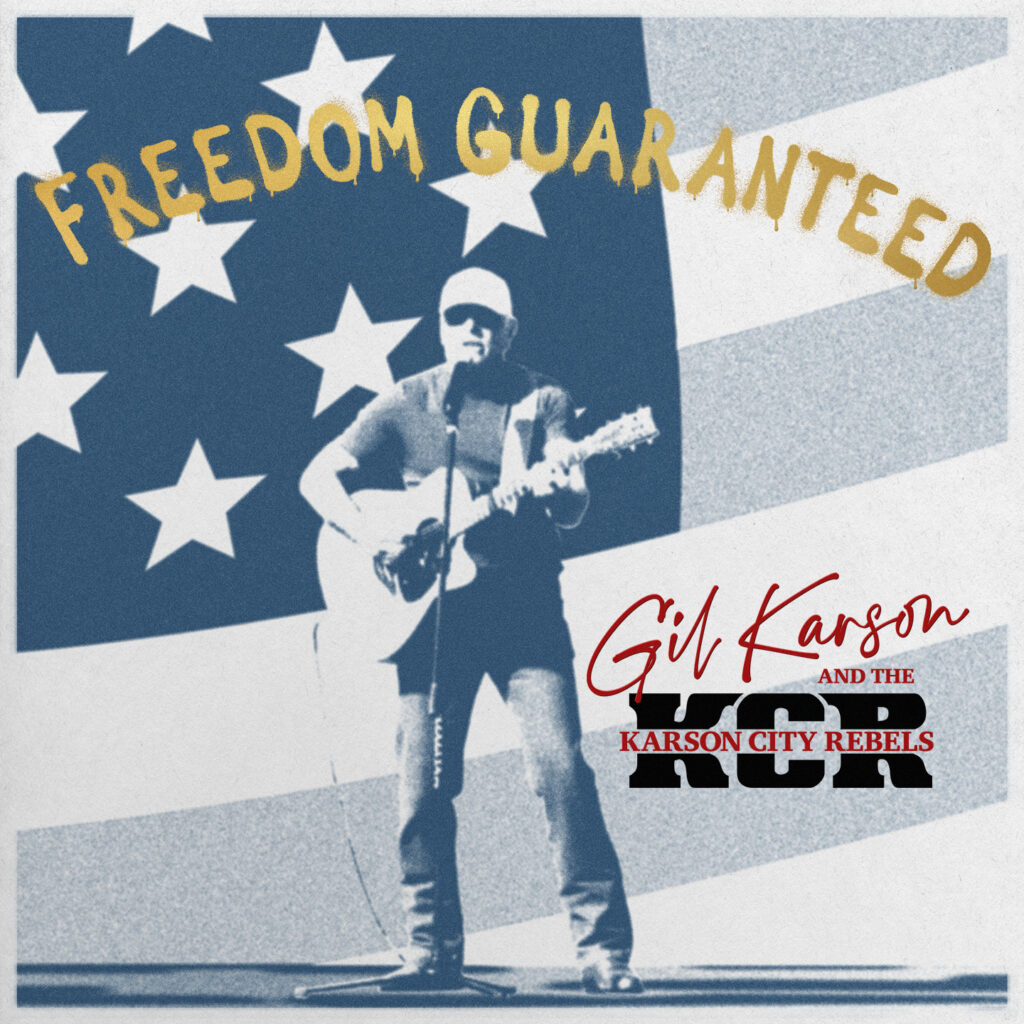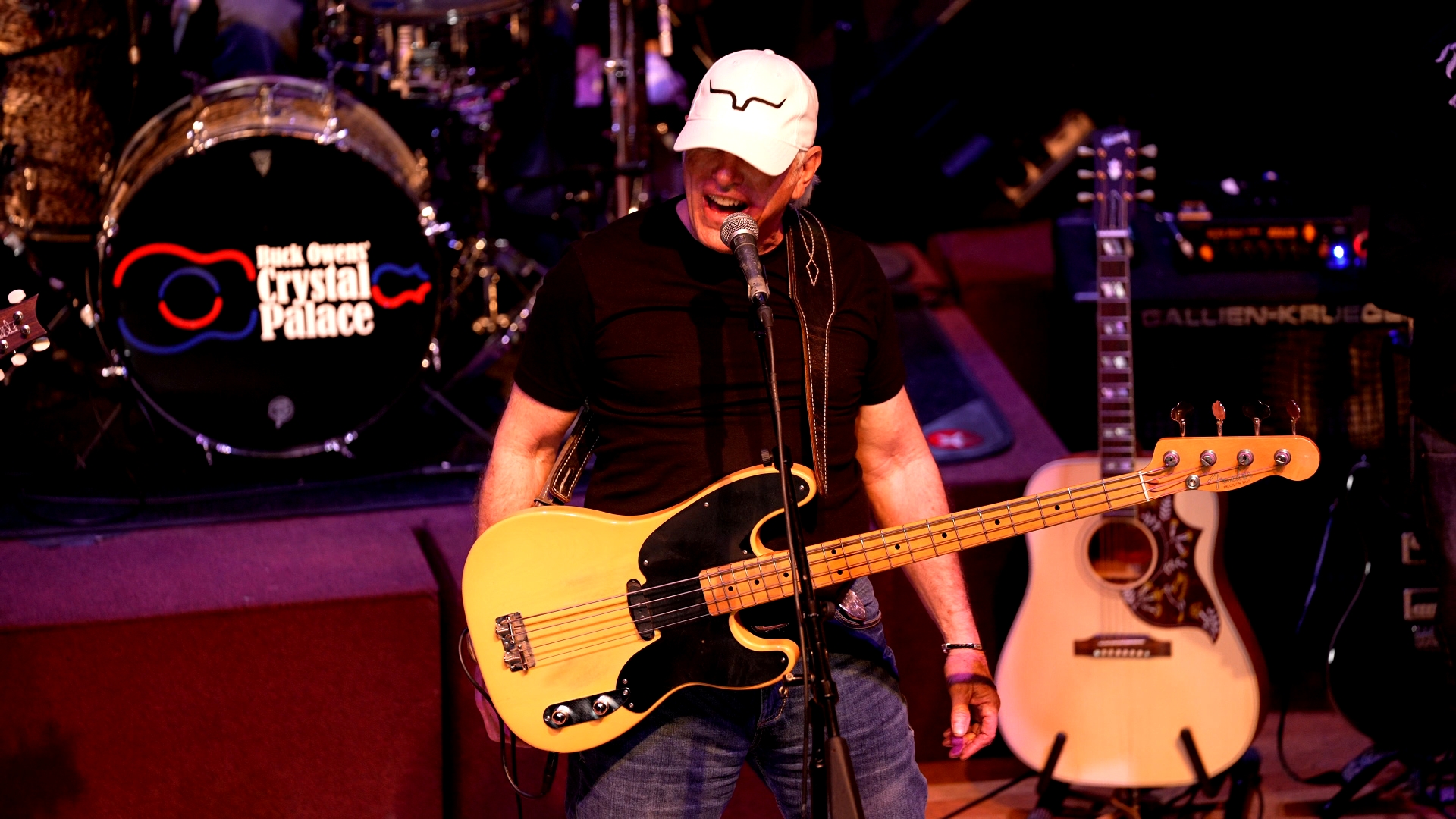Karson began playing music at a young age, finding inspiration in artists from the blues, country, and classic rock genres. It encompasses a sizable variety of artists, he claims. Among his main influences are The Eagles, Chuck Berry, Creedence Clearwater Revival, Johnny Cash, and Waylon Jennings. Karson gained notoriety performing throughout the Southwest before pausing from music to concentrate on starting a family and working in the film industry. But music called out to be heard. Check out the exclusive interview below:
1. Can you tell us a bit about where you come from and how it all got started?
GIL KARSON: I am from a showbiz/theatrical arts family. I grew up south of Hollywood in Hancock Park. Being a bit of a wild child, my parents thought the discipline required to learn a musical instrument would do me some good. So, guitar lessons began just before 5th grade. I did some growing up in Phoenix Arizona where I started playing bass in rock n roll bands. My musical journey brought me back to LA and I’m now living in the land of enchantment, New Mexico.
2. Did you have any formal training or are you self-taught?
GIL KARSON: My music education began with reading music, treble clef, while taking guitar lessons. I’ve had some great teachers along the way and I am also self-taught. I was a music major at LA city college and Arizona State University.
3. Who were your first and strongest musical influences and why the name ‘GIL KARSON?
GIL KARSON: My strongest musical influences, thanks to my older sister, are early rock artists like Chuck Berry and Eddie Cochran. When choosing a band name, I wanted to launch a brand that included my name. Thus, Karson City Rebels. Now that I’m also performing solo in some situations, the band name has been up-dated, with urging from some very influential people, to Gil Karson and the Karson City Rebels.
4. What do you feel are the key elements in your music that should resonate with listeners, and how would you personally describe your sound?
GIL KARSON: The key elements of my music are 1st, lyrics, and storytelling. Then rhythm and melody. The Karson City Rebels sound is a fusion of roots rock, blues and country.
5. For most artists, originality is first preceded by a phase of learning and, often, emulating others. What was this like for you? How would you describe your own development as an artist and music maker, and the transition towards your own style, which is known as COUNTRY?
GIL KARSON: What I’m doing stylistically with the Karson City Rebels comes from years of playing cover songs as a bass player for hire and fronting my own cover/dance bands. Through that experience, I discovered what types of songs and genres work best for me and what audiences like the most.
6. What’s your view on the role and function of music as political, cultural, spiritual, and/or social vehicles – and do you try and affront any of these themes in your work, or are you purely interested in music as an expression of technical artistry, personal narrative, and entertainment?
GIL KARSON: My music has no political agenda. Perhaps the Americana genre in which my music has been classified could be thought of as having a cultural function. My song “Your Spirit Is Alive” has a spiritual theme that speaks to losing a loved one. For the most part, the Karson City Rebels project is about experiencing the thrill of playing live music in an organic way, with no backing tracks, and sharing that high with an audience.
7. Do you feel that your music is giving you back just as much fulfillment as the amount of work you are putting into it or are you expecting something more, or different in the future?
GIL KARSON: As far as recording songs, the process involved always pays back big time in the currency of joy and fulfillment, far beyond the work needed to make it happen. We are just starting to play the original songs live. So far, the thrill of performing them is well worth the work needed to get the band on stage. I plan to continue writing, recording songs, and playing live. Good things are happening and I expect that will continue.
8. Could you describe your creative processes? How do usually start, and go about shaping ideas into a completed song? Do you usually start with a tune, a beat, or a narrative in your head? And do you collaborate with others in this process?
GIL KARSON: My creative songwriting process usually begins with a lyric idea or title. Sometimes a song will be born from an instrumental invention, but that is the exception. I do and have collaborated with others, however, most of my compositions are solo efforts. I’d like to write more with others, it would be great and I’m working on making that happen.
9. Creative work in a studio or home environment, or interaction with a live audience? Which of these two options excites you most, and why?
GIL KARSON: Nothing compares to the thrill of live performance. The interaction with the other band guys and the audience can not be matched by recording. Recording, for the most part, is a clinical exercise. With live, there are no redos. This very fact creates a unique situation filled with anticipation, high energy, big adrenaline rushes, greater passion than experienced in the studio, and if all goes well, everlasting JOY.
10. On the contrary, what would you consider a successful, proud or significant point in your life or music career so far?
GIL KARSON: I have a son and a daughter who are now adults. Being a dad is my greatest life success and it’s what gives me the greatest feeling of pride. As far as music, my song “Le Spank” by Le Pamplemousse, went gold and my new release “Freedom Guaranteed”, co-written with Alan Nathanson, just won the Global Music Awards in the Americana genre.
KEEP IN TOUCH:
FACEBOOK | SPOTIFY | WEBSITE

